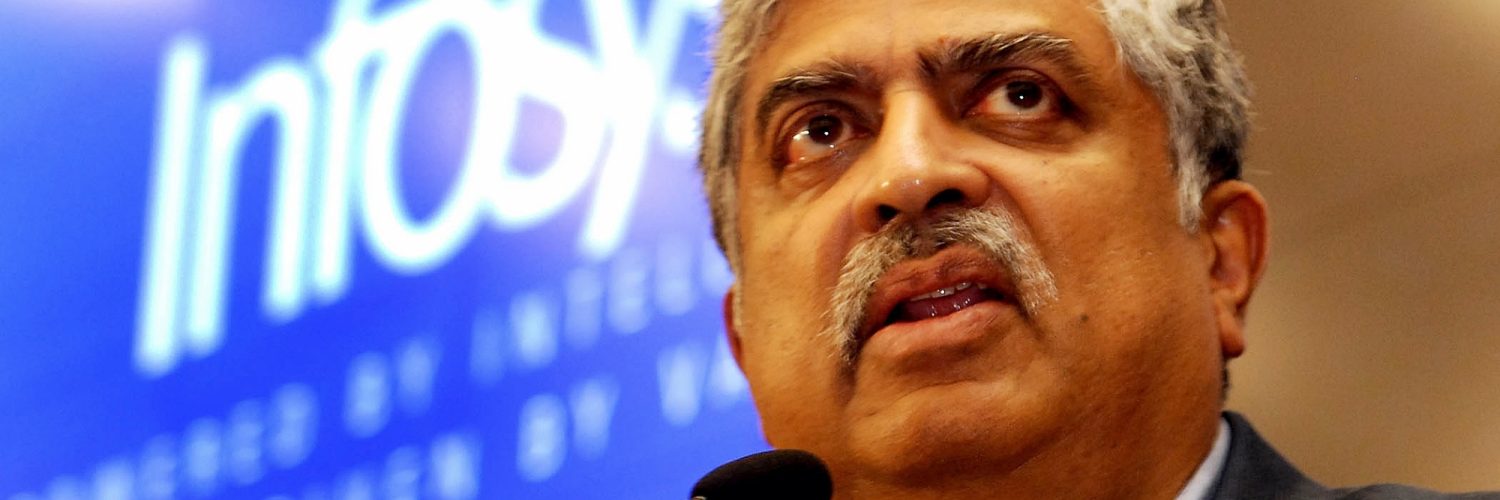“Looking forward to working with the @RBI and the committee to re-imagine payments for India and Indians!,” tweeted Nandan Nilekani hours after RBI’s announcement.
The RBI digital payments panel, to be led by Infosys chairman Nandan Nilekani, will suggest a medium-term strategy for deepening digital payments in India.
KOMAL GUPTA
livemint
Last Published: Wed, Jan 09 2019. 06 23 AM IST
RBI forms Nandan Nilekani-led digital payments panel
The RBI digital payments panel, to be led by Infosys chairman Nandan Nilekani, will suggest a medium-term strategy for deepening digital payments in India
Infosys co-founder and chairman Nandan Nilekani is former chairman of Aadhaar-issuing body, Unique Identity Authority of India. Photo: Mint
New Delhi: The Reserve Bank of India (RBI) on Tuesday constituted a high-level committee headed by former chairman of the Unique Identification Authority of India (UIDAI) Nandan Nilekani to set up a robust digital payments ecosystem in the country.
The committee has been asked to review the existing status of digitization of payments, identify gaps in the ecosystem and suggest ways to plug them.
According to its terms of reference, the panel has to suggest a medium-term strategy for deepening digital payments, and measures to strengthen safety and security.
“The committee shall submit its report within a period of 90 days from the date of its first meeting,” the RBI said.
“Looking forward to working with the @RBI and the committee to re-imagine payments for India and Indians!,” tweeted Nandan Nilekani hours after RBI’s announcement.
Besides Aadhaar architect Nilekani, the other members of the panel are former RBI deputy governor H.R. Khan, former managing director and chief executive officer (CEO) of Vijaya Bank Kishore Sansi, former secretary in the ministry of IT Aruna Sharma and chief innovation officer at the Center for Innovation, Incubation and Entrepreneurship, IIM Ahmedabad, Sanjay Jain.
The terms of reference also include: “To undertake cross country analyses with a view to identify best practices that can be adopted in our country to accelerate digitization of the economy and financial inclusion through greater use of digital payments.”
The panel has also been tasked with the responsibility of increasing customer confidence and trust while they access financial services through digital modes.
Vishwas Patel, chairman of Payments Council of India (PCI), the industry body that represents digital payments companies, welcomed the move and said that all the members of PCI will actively work with the new committee in driving digital payments in the country.
“It is a great step to get specific experts who understand the payments space to identify the issues and give suggestions on what should be done. Each of these five members have already contributed well in this space and will continue to do so,” he said.
The promotion of digital payments has been one of the primary agendas of the government in the past four years.
Payments through all electronic forms such as debit and credit cards, mobile wallets, real-time gross settlement (RTGS), national electronic funds transfer (NEFT) and Unified Payments Interface (UPI) have seen a huge rise over the last few years, especially since the government’s demonetization exercise in November 2016.
The newest mode of digital payments, UPI, which was launched in 2016 has witnessed an over 300% rise in transaction volumes in the last year and the growth is seen continuing in the near term.
A record 620.17 million UPI transactions worth just over ₹1 trillion were conducted in December, as compared to 524.94 million transactions valued at ₹82,232.21 crore in November—an 18% increase in transaction volume, data from the National Payments Corporation of India (NPCI) showed.
PLEASE ALSO READ
RBI issues guidelines for tokenisation of card transactions
“Tokenisation, which aims at improving safety and security of the payment system, refers to replacement of actual card details with an unique alternate code called the ‘token’, which shall be unique for a combination of card, token requestor and identified device. Instead of using actual card details, this token is used to perform card transactions in contactless mode at point of sale(POS) terminals, quick response(QR) code payments.”
livemint
Last Published: Tue, Jan 08 2019. 08 40 PM IST
RBI issues guidelines for tokenisation of card transactions
Instead of using actual card details, this token is used to perform card transactions in contactless mode at point of sale(POS) terminals, quick response(QR) code payments.
Mumbai: Reserve Bank of India on Tuesday released guidelines on tokenisation for various card transactions, including from debit and credit cards.
Tokenisation, which aims at improving safety and security of the payment system, refers to replacement of actual card details with an unique alternate code called the ‘token’, which shall be unique for a combination of card, token requestor and identified device.
Instead of using actual card details, this token is used to perform card transactions in contactless mode at point of sale(POS) terminals, quick response(QR) code payments.
RBI has given permission to offer tokenised card transactions services to all channels such as near field communication (NFC), magnetic secure transmission (MST) based contactless transactions, in-app payments, QR code-based payments or token storage mechanisms, including cloud, secure element and trusted execution environment.
At present, tokenised card transaction facility would be offered through mobile phones or tablets only and will be extended to other devices later based on experience, the central bank said.
Tokenisation and de-tokenisation shall be performed only by the authorised card network and recovery of original Primary Account Number (PAN) should be feasible for the authorised card network only, the release said.
The request for tokenisation and de-tokenisation should be logged by the card network and available for retrieval.
A customer would not have to pay any charges for availing this service, it said.
“Card networks shall get the card issuers/acquirers, their service providers and any other entity involved in payment transaction chain, certified in respect of changes done for processing tokenised card transactions by them,” the release said.
RBI said before providing card tokenisation services, authorised card payment networks shall put in place a mechanism for periodic system audit, at least annually, of all entities involved in providing card tokenisation services to customers.
The central bank also asked card issuers to ensure easy access to customers for reporting loss of ‘identified device’ or any other such event which may expose tokens to unauthorised usage.
Registration of a card on token requestors app shall be done only with explicit customer consent through Additional Factor of Authentication (AFA), and not by way of a forced / default/automatic selection of check box, radio button, the release said.












